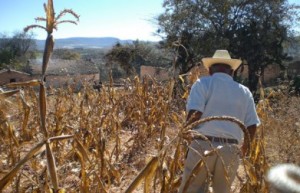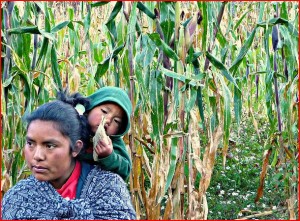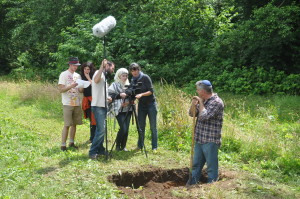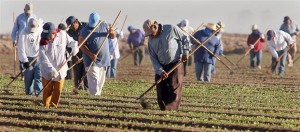
Tag: immigration
Filmmaking, Rumi, and Permanent Residency (or in other words, August so far)
Today, a piece I wrote about the Israeli-Palestinian conflict was published in the latest issue of Christ and Pop Culture. A lot of media portrays this part of the world as being locked into a hopeless gridlock of violence, but this article explores a different narrative: the creative ways that ordinary people are promoting peace by bringing “enemies” together and building relationship (surprisingly, through amateur filmmaking). For now, the full text is only available through a paid subscription, or by downloading this single issue of the magazine, “Enemies Among Us,” for $1.99. Otherwise, I’ll be sharing the article here for free once it becomes publicly available in a few weeks.
In other news, I am now a Canadian permanent resident! It’s hard to describe the relief I feel in finally becoming an “official” person in this country who can work, study, see a doctor, or cross the border freely just like anyone else. My frustrating (but still privileged) experience as an immigrant has been fairly smooth, but it gives me a deeper appreciation for the profound anxiety and instability that mark the lives of the people I know who have come to Canada as refugee claimants, or as undocumented workers whose desperate life circumstances aren’t legally recognized as reasons for them to be here.
I found out about my new status in Canada just two days after returning from an 8-day silent retreat. When I had first told people I was going on that retreat, someone joked that the next step would be to take holy orders and become a Trappist monk. I laughed, knowing that at least in my case, silent retreats have nothing to do with being holy, and everything to do with wanting to be whole.
I went on my first (much shorter) silent retreat back in December out of a recognition of how much healing I needed. I was drawn towards silence by desperation. Despite my intense fear of being alone with myself—or with God—for more than three full days, a voice from somewhere inside me whispered that perhaps I was terrified of exactly the sort of space and stillness I needed in order to make peace with the sadness, fear, and anger that I was more or less able to keep at bay in daily life. Part of me knew that I needed silence.
I surprised myself by feeling reluctant to leave at the end of that first retreat. Me, the talkative, task-oriented extrovert who had done almost nothing for the better part of five days except sip tea, stare into the fire, and have long conversations in my mind! If anything, my longing for unbroken communion with God in the space of long, quiet days had only intensified, and I committed to going on a much longer retreat later in the year.
By the end of July, however, the part of me that had voluntarily signed up for more than a week away from normal life felt small and faint; insignificant in comparison to the part of me that was content with the day-to-day activity which often crowded out the desire for stillness, or even prayer. With travel to and from the small island where it would be held, the retreat meant spending the better part of 10 days away from Andy—by far the longest we have ever been apart during the six and a half years of our relationship—and it involved not just being away, but being completely out of contact, with everyone.
“What’s your intention for the time?” a friend asked me a few days before I left. “I don’t know,” I answered, fear rising up inside me. Wait, I don’t know why I’m going on this retreat, I thought franticly. Should I even go? I briefly considered cancelling, but couldn’t come up with a good excuse.
And yet, when I arrived, it felt like coming home. There’s so much I could share about my experience, but much of that new growth is still so raw and tender, this is the internet, and there’s only so much you can really describe to others about your deepest , most intimate, inner life anyway. I will say that the hardest thing about being in silence is not the absence of speaking, but all the emotions and thoughts and memories that come up when you spend that much time alone with yourself, without even the distraction of basic social obligations like eye contact and verbal greetings.
On the first day, the person I was meeting with for spiritual direction gave me a poem by Rumi called The Guest House:
This being human is a guest house
Every morning a new arrival.
A joy, a depression, a meanness,
some momentary awareness comes
as an unexpected visitor.
Welcome and entertain them all!
Even if they are a crowd of sorrows,
who violently sweep your house
empty of its furniture,
still treat each guest honorably.
He may be clearing you out for some new delight.
The dark thought, the shame, the malice,
meet them at the door laughing,
and invite them in.
Be grateful for whoever comes,
because each has been sent
as a guide from beyond.
I had ridden a wave of circumstantial happiness out of Vancouver, and I reflected that perhaps now I would have the chance to find out what it was like to spend time with God in silence while in a fairly peaceful, even-keeled condition instead of in the midst of emotional turmoil. But eight days is a long time, long enough for turmoil to ensue and subside, and ensue again.
Little did I know that one of the greatest gifts of my retreat would be having enough time to weather those internal storms, and to see that however intense or scary they might seem, they didn’t wash me away. I didn’t exactly manage to “meet them at the door laughing,” as Rumi advised, but after spending a few hours or a whole day in the company of shame, or anger, or sadness, or self-doubt, the “visitor” would inevitably leave and I would still be there. So would God.
The peace that I felt at those times was profound. It wasn’t the usual, flimsy happiness that depends on things going well or turning out a certain way; nor was it the conditional self-acceptance that often follows having done something well. It was that deeper awareness of the bedrock reality that the world is permeated and sustained by Love, that I am loved, and that ultimately—as medieval mystic Julian of Norwich writes—“All will be well, and every kind of thing will be well.”
In a way I couldn’t possibly have planned, those days in silence seem to have marked a boundary line between two seasons in my life: a slow season of processing my transition from India and focusing on my own healing, and a more active season of engaging with the world more fully again. Not abandoning prayer and stillness, or having it all together, but, you know, finding a paid job. Etcetera. I’m excited to see what this new season brings, but I am also thankful for all of the hard-won lessons I will carry forward from the season behind me.
Is Free Trade Fair?
Last Friday, Andy and I attended a panel discussion about how to create a sustainable food system. We learned about the ways that farm workers here in Canada have been shipped in as cheap labor through temporary foreign worker programs, but are denied the basic protections that most people enjoy at their jobs—like paid vacation time, or overtime pay. “Piece rates,” rather than minimum wage, determine their income, and these rates are so low that half the workforce can’t pick produce fast enough to even make minimum wage! Workers are also at the mercy of unscrupulous contractors who function as the middlemen between farms and laborers, retaliating with job termination if workers complain about their housing, working conditions, or pay.
A priest running a migrant worker shelter two borders south, in Tijuana, Mexico, described the even larger problems facing agricultural workers in the United States. The U.S. economy depends on foreign labor, but unlike Canada, has no program for temporary workers at all. The result, he says, is an immigration system in chaos. 600,000 workers were deported from the U.S. last year. Many of them end up at the priest’s shelter, bewildered by their sudden twist of fate, separated from spouses and children, and—in many cases—finding themselves in Mexico for the first time in their lives. The priest told us about a surprising new industry popping up in Tijuana: call centers to employ the growing number of new deportees who speak better English than Spanish.

A small-scale farmer in Mexico (photo from Google images)
Ironically, it was an American-led free trade agreement which created the surge of illegal immigration from Mexico in the first place. When the North American Free Trade agreement (NAFTA) went into effect back in 1994, farming markets were opened so that peasant farmers in Mexico were suddenly competing against large, government-subsidized corn growers in the American Midwest. These small farmers couldn’t compete with the cheap imports from large-scale commercial farms in the U.S., and many of them went bust. Failed farms forced people to migrate first to Mexico’s cities, and then north to the U.S. looking for work. In the last ten years, narcotics cartels have intensified the problem by pushing even more Mexican farmers off their land and causing even urban dwellers to flee the threat of violence.

Corn had been the staple crop in Mexico for centuries. (photo from Google images)
Finally, the director of the Domestic Fair Trade Association (DFTA) in Seattle, Washington, discussed the connection between the plight of small farmers in the U.S. and migrant farm workers from Latin America. Both are losing out against large-scale agribusiness, she says, and their best hope protecting their livelihoods is to band together to defend their rights against corporate giants like Monsanto. The DFTA is hoping to create these kinds of mutually beneficial partnerships all along the supply chain, connecting workers, farmers, suppliers, retailers, and consumers to work for the common good rather than pursuing their own economic benefit at the expense of others.
I have long been aware of the importance of buying fair trade when it comes to products imported from the developing world, such as coffee or chocolate. But this panel discussion opened my eyes to the reality that the agricultural sector here at home is hardly different from the unethical systems that prevail in other parts of the world.
The U.S. and Canada are wealthy, developed nations, but we are still depending on an underpaid, overworked labor force for our cheap, abundant food. Our laws do little to protect farm workers from exposure to harmful chemicals, abuse at the hands of their employers, and nonpayment of wages, and our legal system similarly lags behind in protecting the rights of small farmers.
These are serious problems that should concern anyone who eats food. The United States has an aging farm population, and we have reached a point as a society where we have more people in prison than we do on farms (an absurdity on both counts). According to the Centers for Disease Control and Prevention, the general population has a life expectancy of 73, but the average migrant farm worker can only expect to live to the age of 49. Furthermore, EPA safety standards for farm workers haven’t been updated in twenty years.
It’s obvious in our laws and in the way we have structured our economy that we don’t value the people who produce our food. We have come to see them as just another inanimate, economic input; something to be squeezed for as much productivity on as little pay as possible, to keep profit margins high and prices low for consumers like us.
There is currently no federal regulation for fair trade.
Think about that for a moment.
Farms—companies of all kinds—are under no obligation to prove that their products have been created without exploiting the people or the natural landscapes of the places where they were produced. There’s no way for us to know whether the food that we’re eating has poisoned a river, poisoned someone else’s body, or relied on slave labor to make it to our plate.
It’s high time fair trade came home to North America. We have a responsibility as North Americans and as Christians to care for the people who are sustaining our lives while barely being able to eek out a life of their own in the most prosperous nations on earth.
The video below features interviews from small farmers and migrant workers in the American South, and follows the story of a farm in Florida that is becoming part of the solution:


